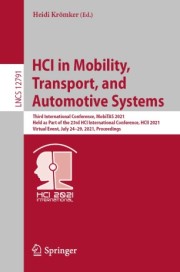Smart is (Not) Always Digital!
Associate Professor Hilda Rømer Christensen has published the article titled ‘Smart is (Not) Always Digital! Expanding the Concept of Assistive Technology: The Roller as an Age-Based, Gendered and Social Innovation’.
 In her paper, Hilda Rømer Christensen looks into the roller as an age-based and gendered innovation that has been underestimated both in terms of practice and in knowledge production despite its value for the elderly and other groups who need walking assistance.
In her paper, Hilda Rømer Christensen looks into the roller as an age-based and gendered innovation that has been underestimated both in terms of practice and in knowledge production despite its value for the elderly and other groups who need walking assistance.
Using the theoretical notion of scripts, the paper demonstrates how rollers and their users are intertwined in everyday practices and how these relationships intersect with notions of age and social welfare provision. Based on contrasting images of rollers and their users, as well as semi-structured interviews with 14 users and 3 professional care/ergonomic workers from the Copenhagen area, the paper examines the puzzle of how the take-up of new (technological) devices comes about.
It argues that the roller can be seen as a simple, disruptive innovation emerging from the bottom up with contradictory scripts of gender and age. The paper concludes with perspectives on of how the roller could be made smarter and digital. This implies a more creative and sensitive approach to both gender and age, and the imperative to transcend existing silos of knowledge and practices in social welfare, city planning and transport policy.
Get access to the paper: Smart is (Not) Always Digital! Expanding the Concept of Assistive Technology: The Roller as an Age-Based, Gendered and Social Innovation
--
The article appears in the book ‘HCI in Mobility, Transport, and Automotive Systems’. The volume contains papers submitted and presented in the context of the 3rd International Conference on HCI in Mobility, Transport and Automotive Systems, an affiliated conference to the 23rd International Conference on Human-Computer Interaction, HCI International 2021.
The paper also forms part of the TiNNGO project, which has received funding from the European Union’s Horizon 2020 research and innovation programme.
